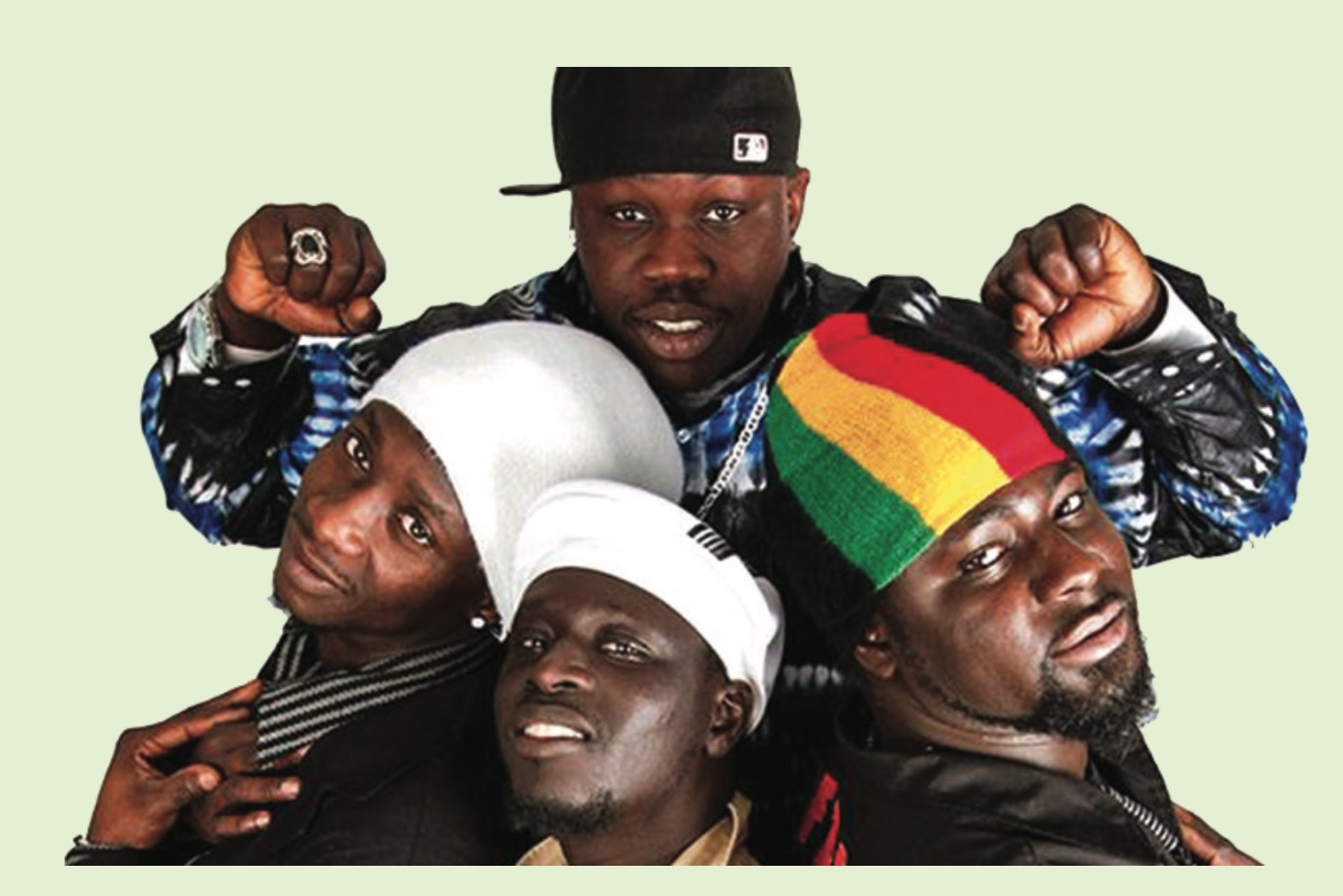GOKH-BI SYSTEM (a.k.a. GBS)
Gokh-Bi System (pronounced Go Bee) was formed in 1995 by three childhood friends: Mamadou Ndiaye, Diasse Pouye, and Papa Bathie Pouye. They grew up together in one of Dakar’s poorest villages, Guinaw Rail, which means “the other side of the tracks”.
Raised in Senegal’s deep, rich musical culture, Gokh-Bi System, like most urban youth born in the 80’s were heavily influenced by hip-hop. They were transfixed by the lyrics and powerful messages found in hip hop and began creating their own lyrics against the beat. They started out imitating what they heard on the cassettes, combining English, French, Arabic, and several other Senegalese dialects including Wolof (the official language of Senegal), Serer, and Jola into their own flow.
Soon freestyle turned into original compositions and the boys from “the other side of the tracks” formed a group and named themselves “Gokh-Bi System” which means the ‘neighbourhood’ system. They started to mix rap with ancient West African music in a style called “ancient-meets-urban”.
“In Africa, if you live in the same neighbourhood, you are like family,” explains Mamadou. “Through our music we want to spread that sense of family we share in Senegal around the world. Even though we live in different countries and speak different languages, we are all part of a universal family. If countries across the entire world respect that our fate is linked, there would be no conflict or war. We would all live in peace.”
After producing a number of recordings in Senegal and reaching number 1 on the charts, in 1999, the group was discovered by U.S. producers visiting Senegal. They recruited them for the Senegal-America Project. It’s an organisation that exposes American school children to African music, dance and culture. In 2000, they were selected by CNN to represent the African hip-hop scene in a documentary on music around the world.

